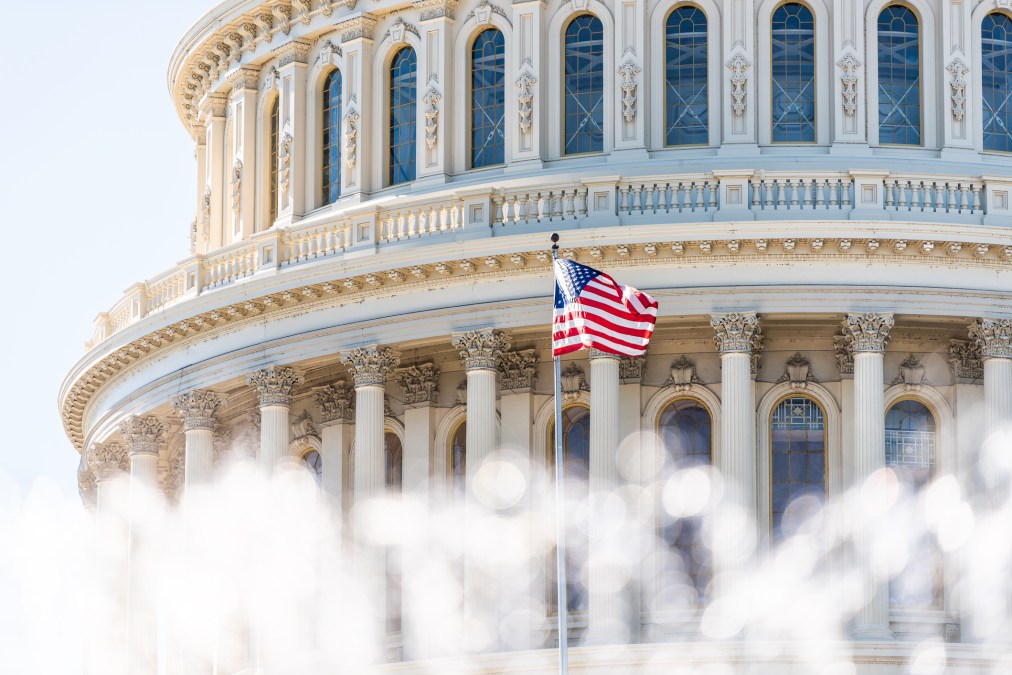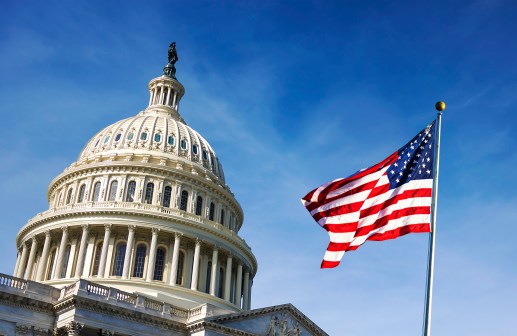House is handling all floor documents electronically; Pelosi offers no word on remote voting

Speaker of the House Nancy Pelosi has instructed members to electronically submit all official floor documents to a “dedicated and secure” email system. But she remains opposed to remote hearings and voting, so the chamber will continue its recess amid the coronavirus pandemic.
Submitting bills, resolutions, cosponsors and extensions of remarks digitally will reduce physical contact between staffers who help manage the flow of those documents. The policy will continue through April 19 and beyond, if necessary, Pelosi said in announcing it last week. She did not specify what the email system will be.
The House chamber will still host in-person, pro forma sessions Tuesday and Friday as part of its previously planned Easter break. Those floor sessions are typically short and involve only a handful of members and staff. Roll Call reported Monday that the full chamber won’t be back in session until May 4 at the earliest.
Pelosi cited security, constitutionality, logistics and timing in her defense of the status quo.
“During this time of crisis, House leadership and institutional staff continue to examine all possible steps to protect the health and safety of members and our staffs, so that we are best able to serve our constituents,” Pelosi wrote.
Except for remote voting.
Lawmakers circulated resolutions in the House and Senate in March calling for temporary rule changes to permit remote voting in accordance with social distancing recommendations from public health officials.
Rep. Eric Swalwell, D-Calif., has pushed for remote voting since 2013. But his office didn’t have much of an update Monday on his Members Operating to Be Innovative and Link Everyone (MOBILE) resolution resubmitted March 9. The congressman’s legislation would let the committees on Rules or House Administration to decide on the appropriate technology, a spokesperson said.
“In the letter Rep. [Katie] Porter and Rep. Swalwell sent to House leadership last month, they outlined that there is no constitutional reasoning for not allowing remote voting, and as for how quickly the House will move, outside of Chairman [Jim] McGovern’s report, we haven’t heard much else,” the spokesperson told FedScoop.
McGovern, D-Mass., chairs the Rules Committee and found proxy voting — allowing present members to register absent colleagues’ votes — the best alternative to voting in person. Even that would require amending House rules via an in-person vote.
Early attempts by lawmakers to employ telework tools during the pandemic have been fraught.
Rep. Jim Jordan, R-Ohio, wrote Rep. Carolyn Maloney, D-N.Y., on Friday pointing out her use of the video teleconferencing system Zoom for an Oversight Committee briefing on women’s rights in Afghanistan, which was “Zoombombed” three times. Zoombombing is when intruders disrupt videoconference calls with hate speech or pornographic images, and Zoom has also been used to distribute malware.
“Given the concerns surrounding Zoom’s security, it is clear Zoom is not an appropriate platform for committee business, which may be particularly sensitive during the COVID-19 pandemic,” Jordan, the ranking member, wrote the chairwoman. “Please immediately suspend any current or future use of Zoom systems for official committee activities and take immediate steps to evaluate the committee’s internal cybersecurity preparedness to prevent hackers from accessing sensitive committee information through the Zoom platform.”






